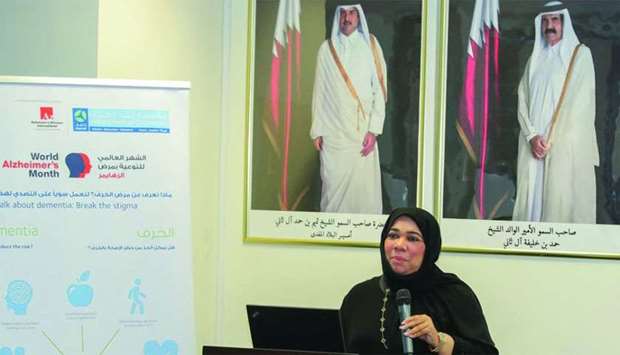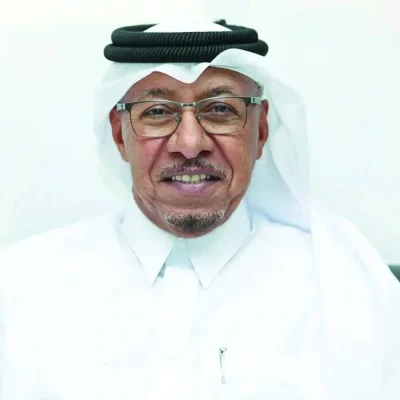To mark World Alzheimer's Day this year, Primary Health Care Corporation (PHCC) and Hamad Medical Corporation (HMC) are working collaboratively to deliver dementia training for family physicians.
The training aims to enhance physician's knowledge and skills in the appropriate assessment, diagnosis and care management of dementia, depression in older people and delirium. It focuses on improvement of the detection of dementia, depression and delirium in older people, and better management of patients.
Dementia mostly affects older people, and the risk of dementia increases with increasing age. The older you are, the more likely you are to be affected by dementia. Approximately 50mn live with dementia worldwide, this is believed to increase to 82mn by 2030. In Qatar alone, it is estimated that 4,440 people are living with dementia, according to the WHO this is expected to rise to 41,340 by the year 2050.
Patients presenting with risk factors related to dementia are likely to be identified in Primary Care ie, diabetes, obesity and mental health.
High-quality primary healthcare services are pivotal for people with dementia and their families to avoid inappropriate hospital admissions which are associated with worsened quality of life of both the person with dementia and his family and financial burden
Executive Director of Operations Dr Samya al-Abdulla commented: "Timely diagnosis is important for people with dementia to empower them to make their own decisions, plan the best possible care, and optimise clinical management. Ensuring early identification through case findings in PHCC in a dementia-friendly, non-stigmatising setting, closer to the patient's home is a key priority for us going forward."
Family physicians in primary care have an important role in early identification and care management of dementia. As family physicians are generally patients' first point of contact with the health system, they are ideally positioned to provide care for individuals living with dementia from early to end stages of the illness. They possess a full and long-term understanding of the medical, social, and psychological situations of these patients and their families.
PHCC has established memory clinics, integrating secondary care and specialists in selected PHCC regional specialist centres, this ensures easy access in a community setting. Patients are then referred to secondary care settings for severe dementia and complex needs. A collaborative care model between primary, secondary and social care sectors ensures better outcomes for patients, their family and caregivers by providing continuity and coordination of care.
The partnership between PHCC and HMC will bring care closer to the community and partner with patients and their caregivers to assess, diagnose and care manage patients with mild to moderate cognitive impairment with severe cases being referred to HMC. PHCC runs two cognitive assessment clinics at Rwadat Al Khail and Lebaib Health Centre with plans to open a new one in Al Wajba in October. The clinics are jointly operated with HMC specialists, geriatricians, geriatric psychiatrists, occupational therapists and PHCC focal physician champions and nurses.
Dr Hanadi Khamis al-Hamad, Chairperson of Geriatrics and Long-Term Care Department at HMC, and National Lead for the "Healthy Ageing" priority within the National Health Strategy 2018-2022 commented: "Efficient integrated systems will sustain and improve diagnosis, enabling the delivery of comprehensive post-diagnostic support within a dementia-friendly community. The complexities of dementia mean we require a system that is well-integrated. We believe working closely will support people with dementia to remain in their own homes, avoiding unnecessary admissions, and will reduce the length of stay and adverse outcomes from delayed transfer of care that we know people with dementia may experience."
Following the launch of the Qatar National Dementia Plan last year, the drive towards providing a comprehensive, evidence-based, integrated and responsive services to patients with dementia and their caregivers is a priority for healthcare providers in Qatar.



